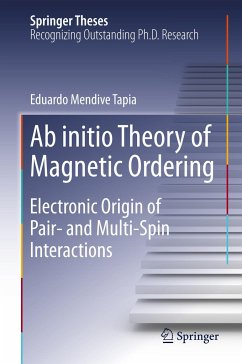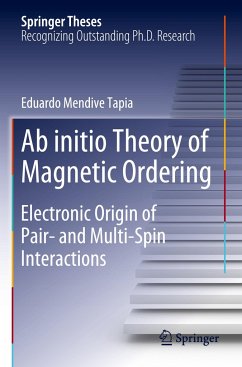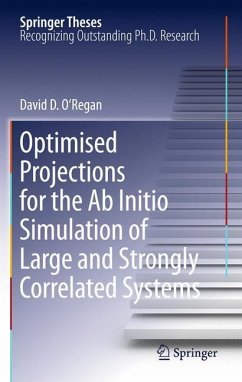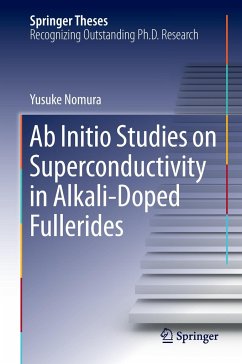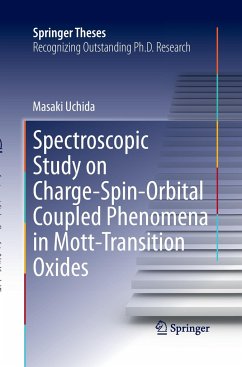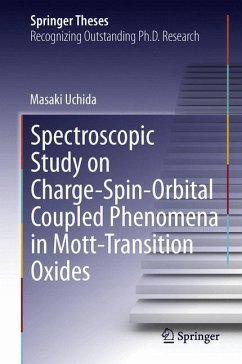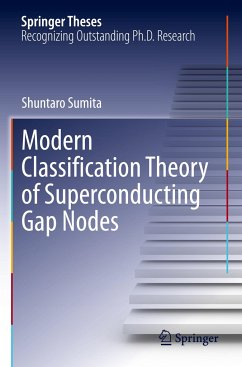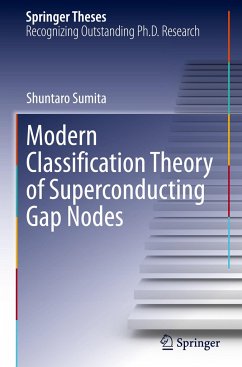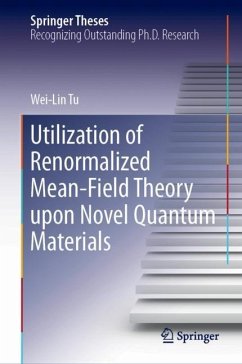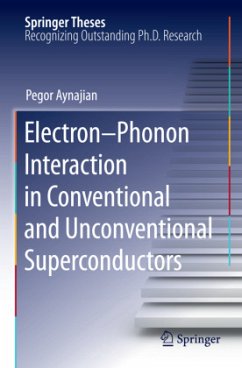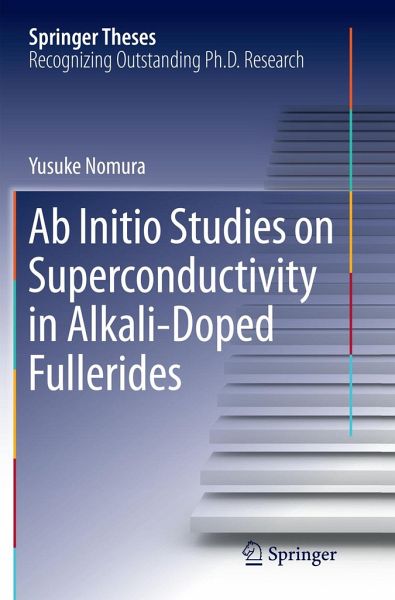
Ab Initio Studies on Superconductivity in Alkali-Doped Fullerides
Versandkostenfrei!
Versandfertig in 6-10 Tagen
76,99 €
inkl. MwSt.
Weitere Ausgaben:

PAYBACK Punkte
38 °P sammeln!
This book covers high-transition temperature (Tc) s-wave superconductivity and the neighboring Mott insulating phase in alkali-doped fullerides. The author presents (1) a unified theoretical description of the phase diagram and (2) a nonempirical calculation of Tc. For these purposes, the author employs an extension of the DFT+DMFT (density-functional theory + dynamical mean-field theory). He constructs a realistic electron-phonon-coupled Hamiltonian with a newly formulated downfolding method. The Hamiltonian is analyzed by means of the extended DMFT. A notable aspect of the approach is that i...
This book covers high-transition temperature (Tc) s-wave superconductivity and the neighboring Mott insulating phase in alkali-doped fullerides. The author presents (1) a unified theoretical description of the phase diagram and (2) a nonempirical calculation of Tc. For these purposes, the author employs an extension of the DFT+DMFT (density-functional theory + dynamical mean-field theory). He constructs a realistic electron-phonon-coupled Hamiltonian with a newly formulated downfolding method. The Hamiltonian is analyzed by means of the extended DMFT. A notable aspect of the approach is that it requires only the crystal structure as a priori knowledge.
Remarkably, the nonempirical calculation achieves for the first time a quantitative reproduction of the experimental phase diagram including the superconductivity and the Mott phase. The calculated Tc agrees well with the experimental data, with the difference within 10 K.
The book provides details of the computational scheme, which can also be applied to other superconductors and other phonon-related topics. The author clearly describes a superconducting mechanism where the Coulomb and electron-phonon interactions show an unusual cooperation in the superconductivity thanks to the Jahn-Teller nature of the phonons.
Remarkably, the nonempirical calculation achieves for the first time a quantitative reproduction of the experimental phase diagram including the superconductivity and the Mott phase. The calculated Tc agrees well with the experimental data, with the difference within 10 K.
The book provides details of the computational scheme, which can also be applied to other superconductors and other phonon-related topics. The author clearly describes a superconducting mechanism where the Coulomb and electron-phonon interactions show an unusual cooperation in the superconductivity thanks to the Jahn-Teller nature of the phonons.





